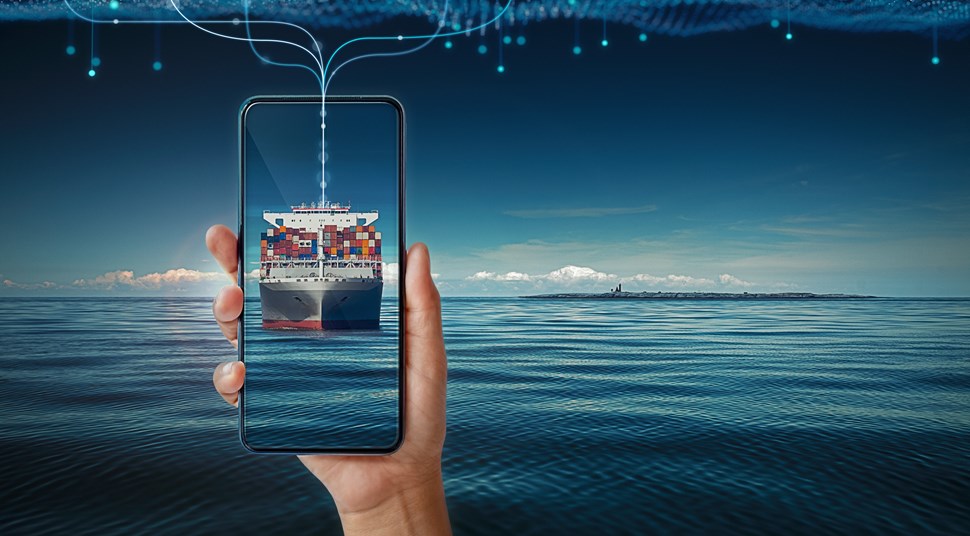The Gothenburg Port Authority has started developing an entirely new digital port call solution in collaboration with maritime operators. In addition to reducing CO2 emissions by approximately 1000 tons per year, the solution “Digital Port Call” will lead to time and cost savings for vessels calling at the port. The tool is expected to be in use starting early 2024.

“Today, there are numerous contacts that need to be made for a ship to arrive at berth, to load and unload, and then depart. This consumes time and creates uncertainty. Digital Port Call consolidates all communication points into a smooth and efficient chain where predictability for the entire ship call process becomes evident. This is a digital tool that many of us have been waiting for," says Fredrik Rauer, Manager of Port Control at the Port of Gothenburg.
Through the Digital Port Call, all parties involved in a ship's arrival, from the onboard captain to the harbor crew, can plan their daily operations and maximize efficiency.
“It encompasses everything from booking pilots and tugs, ensuring cranes are in the right position for the vessel, having the port crew ready to receive ropes, knowing the prevailing wind strength, to identifying the vessels in port. Essentially, it ensures that the right information is available at the right time for effective planning of a smooth arrival," explains Fredrik Rauer.
Digital Port Call is the result of an extended collaboration between the Gothenburg Port Authority and the Finnish company Awake.AI, which is responsible for developing the service. In 2021, the parties launched a new digital Berth Planner tool, Allberth, to the market. Now the collaboration digitalizes the whole port call.
Seamless Work from Start to Finish
From the ship's departure from the previous port until it arrives, a plethora of information influences the voyage and needs to be communicated. In total, this involves nearly 120 different stakeholders that need to be synchronized in some way. Digital Port Call makes all information transparent, thereby enabling informed decisions that conserve resources, reduce emissions, and enhance safety. Captains receive a comprehensive overview of the route to the Port of Gothenburg up to 36 hours before departure. Through a digital port call arrival declaration and its confirmation, the captain can adjust the speed into the port to minimize emissions and avoid anchoring and waiting for an assigned berth.
“Upon arrival at the berth, everything is synchronized and prepared for the best possible service since all service providers have a consolidated understanding of what needs to be done and are prepared, thanks to receiving the right information at the right time. Furthermore, Digital Port Call saves shipping companies days at sea. And if there's anything that costs a lot of money, it is unnecessary day spent at sea. Moreover, shipping companies are truly aligned now with the goal of having the most environmentally friendly propulsion possible, where the Digital Port Call not only saves money but also advances climate efforts," Fredrik Rauer adds.
Investments of €60 Million
The Digital Port Call service is a crucial component of the Port of Gothenburg’s vision to lead in digitalizing the entire logistics chain from sea to inland via the port.
“We aim to be the world's greenest port, and for that, we need to make significant investments in providing our customers, shipping companies, freight forwarders, and cargo owners with the tools and conditions necessary for sustainable transition as quickly as possible," states Fredrik Rauer.
The Digital Port Call is part of the major initiative Green Connection that Port of Gothenburg is implementing to reduce port-related CO2 emissions by 70% by 2030. This involves ensuring storage and access to a mix of alternative fuels, as well as investments in physical and digital infrastructure that support a fossil-free logistics chain – at sea, on land, and at the terminals. €60 million is earmarked for investments in CO2-reducing measures.
Fact file: Digital Port Call
500 hours reduction in berth time per year at the Port of Gothenburg
250 hours reduction in anchoring time per year at the Port of Gothenburg
1,000 tons reduction in CO2 emissions per year from anchored vessels
Expected to be in use by Q1 2024
Project cost of €1,5 million